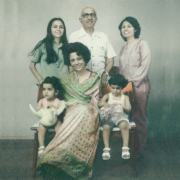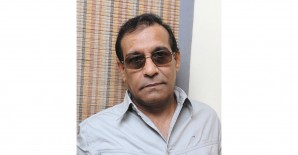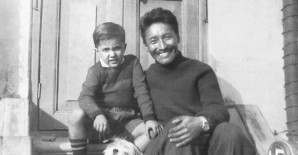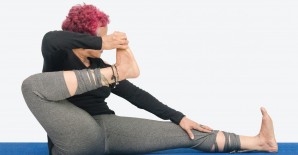
Columns
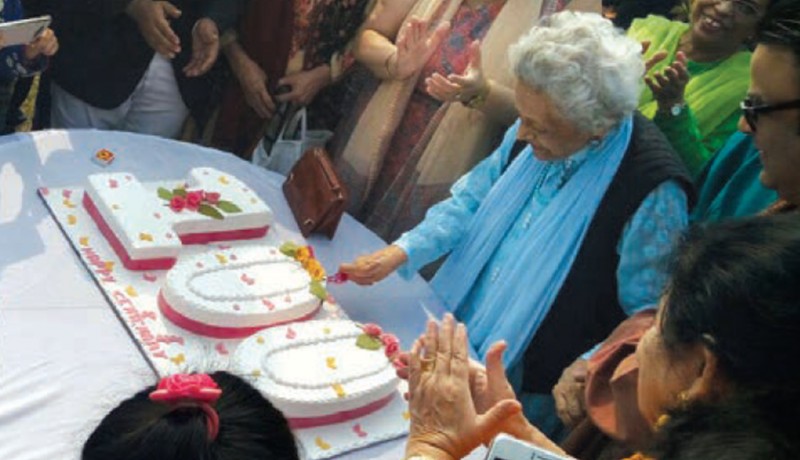
Senior journalist Raj Kanwar on centenarian Begum Hamida Habibullah’s zest for life
When Begum Hamida Habibullah celebrated her 100th birthday a few months ago, she became the toast of Lucknow, the city that has been her karmabhoomi for a major part of her eventful life. Today, she is among the few centenarian women in the country who are physically as active and mentally as alert as they were in their prime.
I was a rookie journalist in Dehra Dun when I first met Begum Habibullah in 1953. Her husband Major General Enaith Habibullah then headed the Joint Services Wing (JSW) at the Indian Military Academy. It thereafter moved to Khadakwasla, Pune, was christened the National Defence Academy, and has since been serving as the primary training institute for officers of all the three defence services.
Elegantly dressed in a sari, Begum Habibullah, then in her late 30s, epitomised a rare elegance and ethereal beauty that left a deep impression on my young mind. Even though that meeting took place 64 years ago, I still recollect it. She asked a few personal questions and was somewhat surprised that I was then a stringer for three mainstream national dailies. We chatted and sipped coffee. She was courteous enough to escort me to the door of her drawing room. That was our first meeting and, alas, the last!
All the faded memories of that day came rushing back when I read about her 100th birthday celebrations. One of the most remarkable women of her generation, Begum Habibullah still retains her zest for life and a penchant for helping the needy. Today, at 100, she looks as charming and graceful as she was in her prime. A friend’s daughter, who was at the celebrations, speaks admiringly of “her zeal and enthusiasm that is at once infectious and compelling. She walks with a straight and elegant gait and hardly anyone could imagine that she had turned a centenarian.”
Begum Habibullah is an amalgam of two of the most refined cultures of the country: Hyderabadi and Lucknowi. Her father Nawab Nazir Yar Jung was the chief justice of the Hyderabad High Court. The only daughter among four siblings, she excelled in studies and topped the Senior Cambridge examination at Osmania University. Her visit to London as a teenager had greatly influenced her views on life; she took a fancy to English society and way of life and wanted to pursue higher studies at Cambridge University, but that was not to be. Her mother had settled her marriage in the Habibullah family: the Taluqedars of Saidanpur of Bara Banki district in Uttar Pradesh. She had no option but to return to India and yield to her mother’s cajoling. She married in 1938 at the age of 22. Her husband was a dashing young man of 28 at the time.
Somewhat unusual for a newlywed, she went to London for a two-year teachers’ training course soon afterwards. However, it was just as well, as that training helped her later to promote the cause of women’s education. “My mother-in-law was passionate about girls’ education and supported me in completing my studies. She prepared me to carry forward her great work in the field of education and uplift of women,” she had once told an interviewer.
In no time, Hamida became her mother-in-law’s right-hand woman. Together, they founded Talimgah-e-Niswan, a school for girls from the minority communities. Today, it has over 3,500 students, largely from lower-income minority families. She was also made president of Avadh Girls’ Degree College, Lucknow’s first English-medium degree college for girls. Further, she managed several community-centric activities as the head of family-run educational institutions. Yet, Begum Habibullah invariably managed to find time to travel, socialise and look after her responsibilities as a wife and mother.
As an Army wife, she was of great assistance to her husband who had been commissioned as early as 1930, a period when the Indian Army was predominantly officered by the British. Having been educated in London, she held more than her own in the company of British wives. She was equally popular with the wives of Indian officers in the post-1947 era; she was involved with army wives’ associations and helped promote numerous welfare activities. She also played a significant role as hostess to a galaxy of world leaders who visited the Khadakwasla academy where her husband was the commandant. Among the visiting leaders were Nikita Khrushchev and Nikolai Bulganin of the USSR, Queen Soraya and the Shah of Iran, China’s Mao Zedong and Zhou Enlai, and Lady and Lord Mountbatten. Another important leader was Shah Saud of Saudi Arabia, on whose personal invitation both Gen Habibullah and the Begum performed Haj.
Her life took a new turn when she joined politics after her husband’s retirement in 1965. In no time, she achieved prominence in her new avatar, thanks to her family’s close ties with the Nehrus. She was an MLA, minister of state and member of the Rajya Sabha for six years, and turned out to be a popular politician.
Her husband’s death in 1990 again changed the course of her life. Without his anchoring role, she felt at a loss. She even shifted to Delhi to be with her daughter but continued to regularly visit Lucknow, where she resumed her interest in the various institutions founded by her and her mother-in-law. For the past many years, she has been mostly living in Lucknow at her family’s sprawling Habibullah Estate. It is here that her granddaughter-in-law Jyotsna Habibullah has proved to be of immense help; she has assumed a prominent role in overseeing the numerous trusts and educational institutions run by the family.
One of Begum Habibullah’s ardent admirers is Zarine Viccajee, who has been associated with Avadh Girls’ Degree College for nearly four decades. “The Begum has donned myriad hats with equal felicity—she has been an efficient homemaker, proud wife of a decorated general, social worker, politician and educationist,” says Viccajee. “She has achieved so much that it is virtually impossible to encapsulate 100 years of achievement in a brief narrative. What she has achieved in various fields speaks of her amazing talent and joie de vivre.” Meanwhile, Begum Habibullah’s son Wajahat, a distinguished civil servant, has this to say about his mother: “She has been less of a mother and more of a role model for me. From as long as I can remember, and certainly from our days in the Army, she has remained committed to social work.”
For his part, grandson Amar reminisces, “My grandmother was my guardian in Delhi as my parents were in Kashmir. She used to give me pocket money regularly, and was very proud that I, too, rode like my grandfather and played polo. She used to attend the matches to cheer for me!” Meanwhile, granddaughter-in-law Jyotsna, who is also her successor in the numerous educational and charitable institutions in Lucknow, is inspired by her “positivity” and “zest for life”. “She quotes poems from Shakespeare as well as classic Urdu poets and has interesting anecdotes relating to events of the last century,” she remarks.
On a personal note, I, an octogenarian, am also greatly inspired by her indefatigable energy and enthusiasm, and hope to follow in her noble footsteps.
The writer is a veteran journalist based in Dehradun
Featured in Harmony — Celebrate Age Magazine September 2017
you may also like to read
-
Mental workout
Mukul Sharma tells you how to keep those grey cells ticking Everyone will ultimately lose his or her brain….
-
Helpline
Dr Harshbir Rana answers your queries on personal and social issues related to ageing, elder care and intergenerational relationships ….
-
Off the cuff
Raju Mukherji pays tribute to his first hero, Tenzing Norgay, an exemplary mountaineer Darjeeling, 1955. Dr ‘Pahari’ Guha Mazumdar….
-
Yoga RX
Shameem Akthar shows ways to control debilitating ankle pain through regular practice Ankle pain is so common and prevalent….



